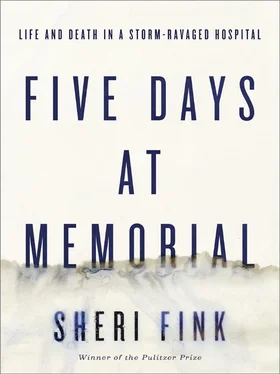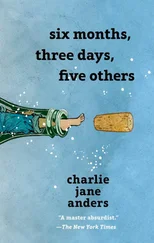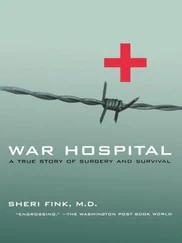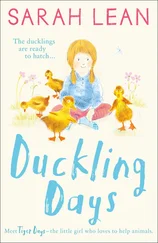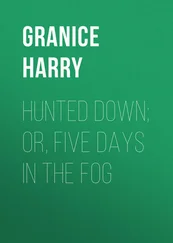Like many of the hospital staff around him, his professional association with what was now Memorial Medical Center stretched back decades, in his case to 1977, when he had rotated at the hospital as a Louisiana State University medical student. A classmate would later say that Johnny Thiele had turned into the sort of doctor they all wished to be: kind, gentle, and understanding, perhaps all the more so for having struggled over the years with alcohol and his moods. When Dr. T passed a female nurse, he would greet her by name with a pat on the back and sometimes call her “kiddo.”
Thiele had undergone part of his training at big, public Charity Hospital, one of the busiest trauma centers in the nation, where he learned, when several paramedics burst into the emergency room in close succession, to attend to the most critical patients first. It was strange to see the sickest here at Memorial prioritized last for rescue. At a meeting Thiele had not attended, a small group of doctors had made this decision without consulting patients or their families, hoping to ensure that those with a greater chance of long-term survival were saved. The doctors at Memorial had drilled for disasters, but for scenarios like a sarin gas attack, where multiple pretend patients arrived at the hospital at once. Not in all his years of practice had Thiele drilled for the loss of backup power, running water, and transportation. Life was about learning to solve problems by experience. If he had a flat tire, he knew how to fix it. If somebody had a pulmonary embolism, he knew how to treat it. There was little in his personal history or education that had prepared him for what he was seeing and doing now. He had no repertoire for this.
He had arrived here on Sunday. He brought along a friend who was recovering from pneumonia and was too weak to comply with the mayor’s mandatory evacuation order for the city, which had exempted hospitals. Early Monday, Thiele awoke to shouts and felt his fourth-story corner office swaying. Its floor-to-ceiling windows, thick as a thumb, moved in and out with the wind gusts, admitting the near-horizontal rain. He and his colleagues lifted computers away and sopped up water with sheets and gowns from patient exam rooms, wringing out the cloth over garbage cans.
The hurricane cut off city power. The hospital’s backup generators did not support air-conditioning, and the temperature climbed. The well-insulated hospital turned dank and humid; Thiele noticed water dripping down its walls. On Tuesday, the floodwaters rose.
Early Wednesday morning, Memorial’s generators failed, throwing the hospital into darkness and cutting off power to the machines that supported patients’ lives. Volunteers helped heft patients to staging areas for rescue, but helicopters arrived irregularly. That afternoon, Thiele sat on the emergency room ramp for a cigar break with an internist, Dr. John Kokemor, who told him doctors were being requested to leave last. When Thiele asked why, his friend brought an index finger to the crook of his opposite elbow and pantomimed giving an injection. Thiele caught his drift.
“Man, I hope we don’t come to that,” Thiele said. Kokemor would later say he never made the gesture, that he had spent nearly all his time outside the building loading hundreds of mostly able-bodied evacuees onto boats, which floated them over a dozen blocks of flooded streets to where they could wade to dry ground. He said he was no longer caring for patients and too busy to worry about what was going on inside the hospital.
Wednesday night, Thiele heard gunshots outside the hospital. He was sure people were trying to kill each other. “The enemy” lurked as near as a credit union building across the street. Thiele thought the hospital would be overtaken, that those inside it had no good way to defend themselves. He lost his footing in an inky stairwell and nearly pitched down the concrete steps before catching himself. Panicked and convinced he would die, he reached his family by cell phone to say good-bye.
Thiele felt abandoned. You pay your taxes, he thought, and you assume the government will take care of you in a disaster. He also wondered why Tenet, the giant Texas-based hospital chain that owned Memorial, had not yet sent any means of rescue.
Finally, on Thursday morning, the company dispatched leased helicopters, while other aircraft from the Coast Guard, Air Force, and Navy hovered overhead awaiting a turn to perch on Memorial’s helipad. Air-boats came and went with the earsplitting drone of airplane engines.
The pilots would not allow pets on board the aircraft and watercraft, creating a predicament for the staff members who had brought them to the hospital for the storm. A young internist held a Siamese cat as Thiele felt for its breastbone and ribs and conjured up the anatomy he had learned in a college dissection class. He aimed the syringe full of potassium chloride at the cat’s heart. The animal wriggled free of the doctor’s hands and swiped and tore Thiele’s sweat-soaked scrub shirt. Its whitish fur stuck to him. They caught the animal and tried again to euthanize it, working in a hallway perhaps twenty feet away from the patients in the second-floor lobby. It was craziness.
A tearful doctor came to Thiele with news she had been offered a spot on a boat with her beautiful twenty-pound sheltie. She had quickly trained it to lie in a duffel bag. Several of the doctor’s human companions were insisting they would not leave without her. Since the floodwaters had surrounded them, the doctor had been sick to her stomach and continuously afraid. She wanted to go while she had this chance, but she felt guilty about abandoning her colleagues and the remaining patients. “Don’t cry, just go,” Thiele said. “An animal’s like a child.” He reassured her: “We gonna get by without you. I promise you.”
Thiele walked back and forth through the second-floor lobby multiple times as he journeyed between the hospital and his medical office. As the hours passed, the volunteers fanning the patients on their stretchers were shooed downstairs to join an evacuation line snaking through the emergency room.
Thiele knew nothing about the dozen or so patients who remained, but they made an impression on him. Before the storm, the poor souls would have had a chance. Now, with the compounding effects of days in the inferno with little to no medications or fluids, they had deteriorated.
The airboats outside made it too loud for Thiele to use a stethoscope. He didn’t see any medical records, he didn’t feel he needed them to tell him that these patients were moribund. He watched a doctor he didn’t know direct their care, a short woman with auburn hair. He would later learn her name: Dr. Anna Pou, a head and neck surgeon.
Pou was among the few doctors still caring for patients inside the stifling hospital. Some physicians had departed; those who hadn’t were, for the most part, no longer practicing medicine—they had assumed the roles of patient transporters or were overseeing the evacuations outside where it was somewhat cooler. But Pou looked to Thiele like a female Lone Ranger. After enduring four stressful days and four nights of little sleep, she retained the strength and determination to tend to the worst-off. Later, he would remember her saying that the patients before them would not be moved from the hospital. He did not know if she had decided that, or if she had been told that by an administrator.
Hospital CEO L. René Goux had told Thiele that everyone had to be out by nightfall. A nursing director, Susan Mulderick, the designated disaster manager, had given Thiele the same message. The two leaders later said they had meant to focus their exhausted colleagues on the evacuation, but the comments left Thiele wondering what would become of these patients when everyone else left.
Читать дальше
